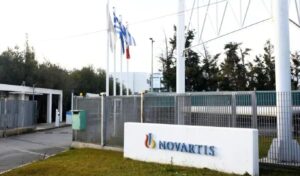Only a few minutes had passed since his presentation at the Partnership for Transatlantic Energy and Climate Cooperation (P-TEC) when US Deputy Secretary of State for Economic Growth, Energy and the Environment Jacob Helberg stepped down from the stage to applause. Smiling, he gave an exclusive interview to “Parapolitika,” telling the undersigned that energy security is inextricably linked to national security.
He emphasized that the United States stands and will continue to stand by Greece’s side, thus giving a vote of confidence to our country, a fact that was proven by the “landing” of America’s energy elite in Athens. Amid an unstable geopolitical environment, Mr. Helberg underlined that the deals signed at the Zappeion are not only economically but also geopolitically beneficial for Greece.
Before leaving the conference venue to attend the “closed” meetings, the American Deputy Secretary confided to our newspaper his personal weakness for everything Greek. From its people and islands to the exquisite Greek flavors.
How do you evaluate the Ionian Sea agreement signed here at the Zappeion? Can you explain to Greek citizens what economic and geopolitical benefits this specific deal brings and how it affects Greece’s role?
From the beginning of human civilization, one can draw a straight line between energy security and economic development. Energy is a prerequisite for almost every human activity. Greece is a country blessed with tremendous human potential. With many possibilities for energy development, especially in natural gas and other forms of energy. I believe Greece also has great ambitions in Artificial Intelligence, which is a transformative industry that, as you know, is very, very energy-intensive. So, these agreements represent a significant milestone in deepening the partnership between the United States and Greece, enhancing energy security for both countries, allowing them to “unlock” the industries of the future, including Artificial Intelligence.
Greece is a country blessed with tremendous human potential and many possibilities
Is energy security connected to national security and border protection? Do the agreements signed at P-TEC have a geopolitical impact?
Absolutely. Energy security is national security, just as economic security is national security. And ultimately, these agreements are about more than economics. They are actually about national security and national sovereignty. That’s why there’s a strategic dimension to the importance of these agreements.
How confident can the Greek people be that the United States will stand by Greece’s side?
As evidenced by our delegation here… I, as Deputy Secretary of State for Economic Affairs, am here with my entire team. Secretary Wright is here with his team. Secretary Bergum is here with his team and, of course, we have our excellent ambassador, Kimberly Guilfoyle, who has known our president for over 25 years. Our cooperation with Greece is extremely strong. We are signing one agreement after another. There is no distance between the Greek government and the US government on fundamental economic issues. And that’s why we have such a broad delegation at P-TEC and have enjoyed our stay here so much.
Our cooperation is extremely strong. We are signing one agreement after another
Do you like Greece? Do you plan to visit more frequently?
You know, we are very fortunate as a government because we have great participation from Greek Americans. I think it’s hard to look at America and not admit that Americans love Europe and that Greece is probably one of the top destinations for Americans abroad, especially in summer. Greece is not just a beautiful country. It’s a country with incredible culture and food, and I have a feeling my team will pressure me to come here very often (laughs).
Published in Parapolitika




